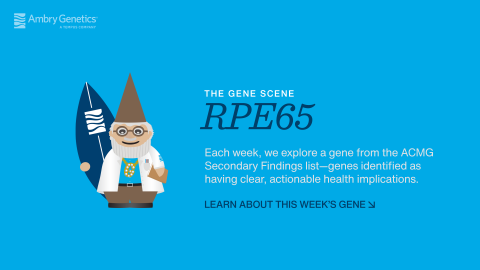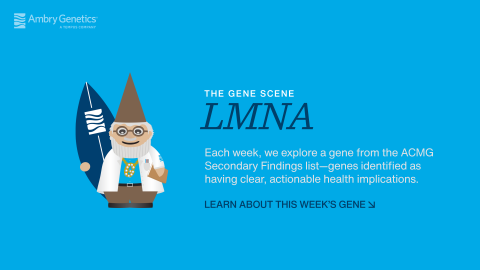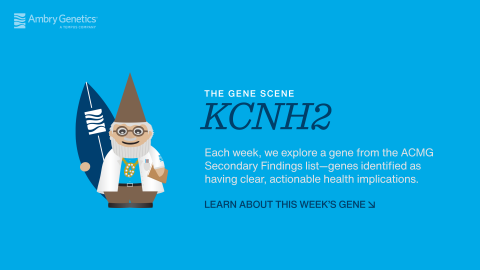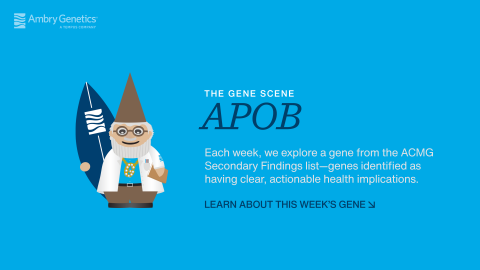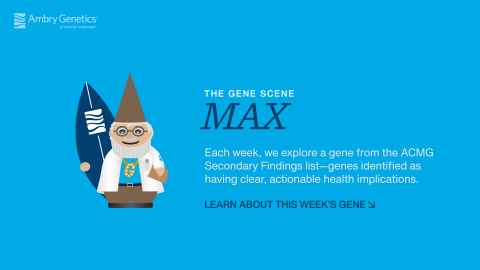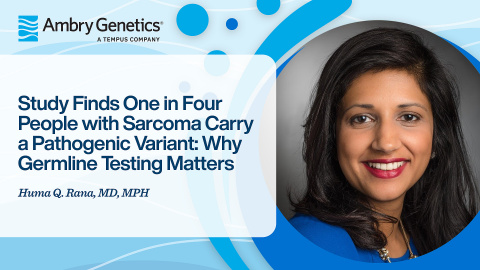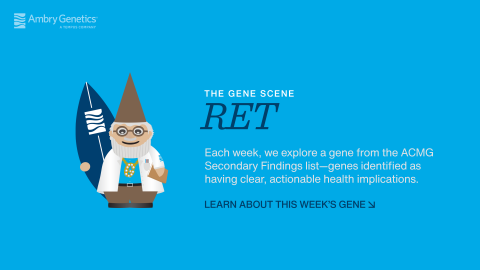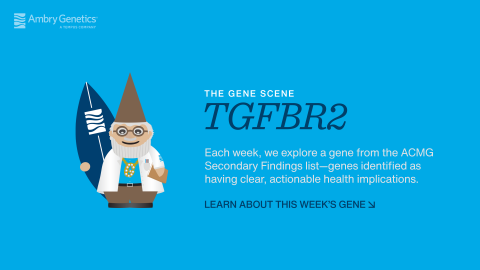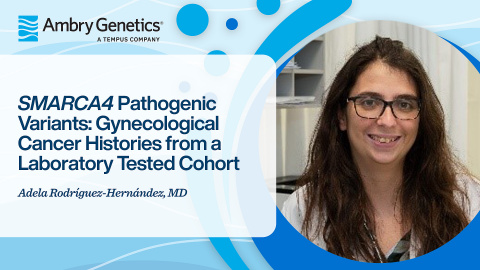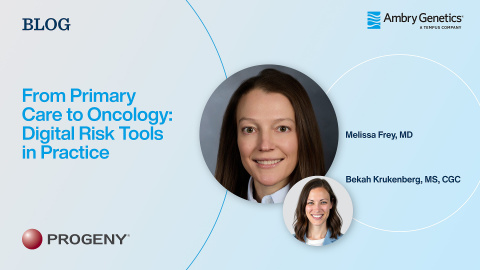- By Brooke Sample, MS, CGC
- Posted February 17, 2026
The Gene Scene: RPE65
Welcome to the Gene Scene! Each week, we will explore a gene from the ACMG Secondary Findings list—genes identified by the American College of Medical Genetics and Genomics as having clear, actionable health implications. These genes are included because they’re linked to serious but preventable or manageable conditions when identified early.…
- By Heather Rocha, MS, CGC
- Posted February 10, 2026
The Gene Scene: LMNA
Welcome to the Gene Scene! Each week, we will explore a gene from the ACMG Secondary Findings list—genes identified by the American College of Medical Genetics and Genomics as having clear, actionable health implications. These genes are included because they’re linked to serious but preventable or manageable conditions when identified early.…
- By Libby Couchon, MS, LCGC
- Posted January 27, 2026
The Gene Scene: KCNH2
Welcome to the Gene Scene! Each week, we will explore a gene from the ACMG Secondary Findings list—genes identified by the American College of Medical Genetics and Genomics as having clear, actionable health implications. These genes are included because they’re linked to serious but preventable or manageable conditions when identified early.…
- By Haley Streff, MS, CGC
- Posted January 20, 2026
The Gene Scene: APOB
Welcome to the Gene Scene! Each week, we will explore a gene from the ACMG Secondary Findings list—genes identified by the American College of Medical Genetics and Genomics as having clear, actionable health implications. These genes are included because they’re linked to serious but preventable or manageable conditions when identified early.…
- By Jessica Scott, MGC, CGC
- Posted January 13, 2026
The Gene Scene: MAX
Welcome to the Gene Scene! Each week, we will explore a gene from the ACMG Secondary Findings list—genes identified by the American College of Medical Genetics and Genomics as having clear, actionable health implications. These genes are included because they’re linked to serious but preventable or manageable conditions when identified early.…
- By Huma Q. Rana, MD, MPH
- Posted December 30, 2025
Study Finds One in Four People With Sarcoma Carry a Pathogenic Variant: Why Germline Testing Matters
I am excited to share results of our large case-control study of 488 people with sarcoma and 2,440 matched cancer-free controls. Our study published in the Journal of the National Cancer Institute (JNCI) sought to determine whether germline pathogenic variants (gPVs) were more frequent in people with sarcoma than in cancer-free controls…
- By Katherine Crawford, MS, CGC
- Posted December 30, 2025
The Gene Scene: RET
Welcome to the Gene Scene! Each week, we will explore a gene from the ACMG Secondary Findings list—genes identified by the American College of Medical Genetics and Genomics as having clear, actionable health implications. These genes are included because they’re linked to serious but preventable or manageable conditions when identified early.…
- By Connolly Steigerwald, MS, CGC
- Posted December 23, 2025
The Gene Scene: TGFBR2
Welcome to the Gene Scene! Each week, we will explore a gene from the ACMG Secondary Findings list—genes identified by the American College of Medical Genetics and Genomics as having clear, actionable health implications. These genes are included because they’re linked to serious but preventable or manageable conditions when identified early.…
- By Adela Rodríguez-Hernández, MD
- Posted December 17, 2025
SMARCA4 Pathogenic Variants: Gynecological Cancer Histories from a Laboratory Tested Cohort
As a research fellow in the Cancer Genetics and Prevention group at Dana-Farber Cancer Institute—trained as a medical oncologist in Spain and specializing in hereditary cancer and translational genomics—I am often asked how to counsel patients who carry rare pathogenic variants, particularly when evidence is limited or outdated. Few scenarios…
- By Bekah Krukenberg, MS, CGC
- Posted December 10, 2025
From Primary Care to Oncology: Digital Risk Tools in Practice
Dr. Melissa Frey, a gynecologic oncologist, cancer geneticist, and researcher based in New York City, uses digital tools to streamline family history intake, assess cancer and hereditary risk, and improve documentation. We’ve previously covered Dr. Frey’s work showing how digital history collection improved documentation and risk assessment…
